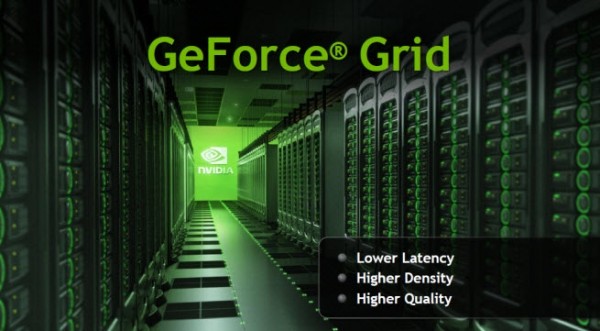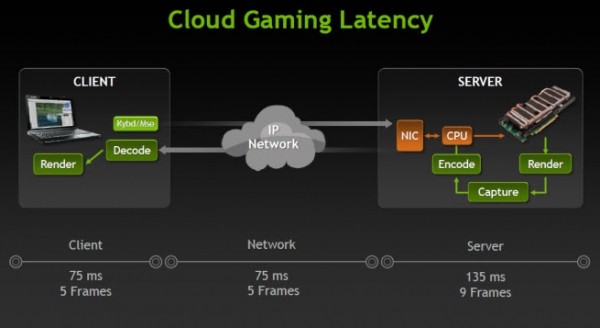We've already seen Nvidia's latest graphics architecture in action on standard gaming rigs, but the company shared some of Kepler's cloud-centric benefits during the GPU Technology Conference in San Jose, California today. Nvidia says that first-generation Fermi-based game servers, such as those run by Gaikai, only have one GPU per server or 28 GPUs per rack. One GPU is allocated to a game stream and each chugs 150W.

As part of Nvidia's cloud solution, called GeForce Grid, Kepler allows four GPUs per server or 84 per rack at 75W each. That should result in major savings for server operators and assuming they pass that on to gamers, Nvidia says it's possible for a streaming service to offer bundles of games for about $10 a month -- akin to video streaming outifts like Netflix. OnLive currently offers 200+ titles (not new releases) for $9.99 a month.
Besides being more economical, GeForce Grid is reduces server-side latency by up to 30ms. Lag is a common concern about existing server-based gaming services, but GeForce Grid purportedly offers latency on par with and potentially better than local consoles. Nvidia chalks that improvement up to its fast and concurrent game capture APIs, strategic geographic server placement, and better input lag on Smart TV Ethernet ports.

Gaikai, an upcoming OnLive competitor, has announced that it will upgrade all of its data centers with GeForce Grid in August. Gaikai has largely been used to stream demos, but it's been working toward serving full games. Free-to-play mech shooter Hawken is expected to appear on the service shortly after its launch on December 12. Nvidia also has partnerships with Ubitus and Playcast, two lesser-known game streaming services.